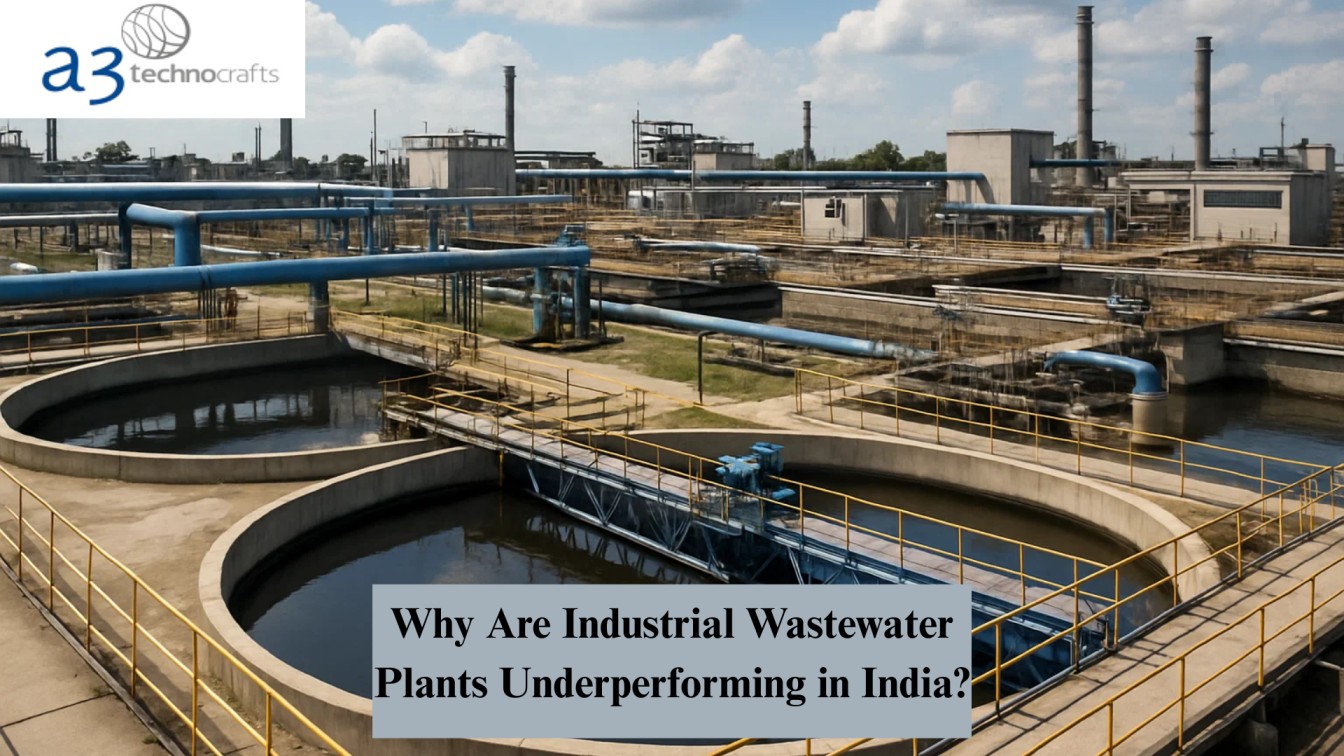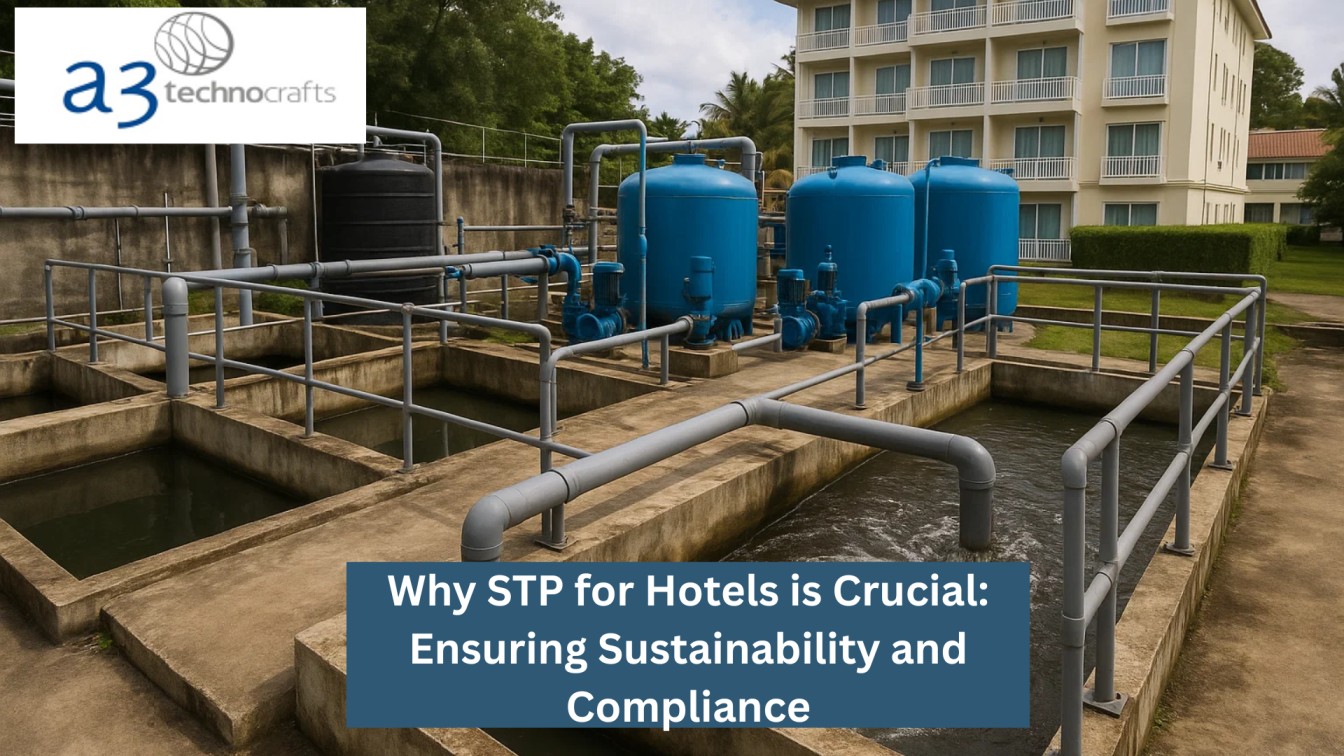A Look at Delhi’s Utilization Gap
India, a fast-growing industrial economy, is simultaneously facing one of its most critical environmental challenges: the effective treatment of wastewater. Despite heavy investments in setting up infrastructure, many industrial wastewater treatment plants remain underutilized. Delhi, the nation’s capital, offers a striking example of this issue — raising serious concerns about operational inefficiencies, policy gaps, and long-term environmental impact.
At A3 Technocrafts, we believe addressing this gap is essential not just for compliance but for building a sustainable industrial future.
The Current Scenario in Delhi
Delhi has made strides in establishing wastewater treatment infrastructure. According to recent reports, the city houses several industrial wastewater treatment plants that should, in theory, be capable of handling the growing volume of waste generated by manufacturing hubs and industrial clusters. Yet, these plants are not operating at full capacity.
A key example is the underutilization of the Haiderpur Water Treatment Plant and the challenges faced at Okhla STP, both of which are critical to treating industrial and domestic waste before it flows into the heavily polluted Yamuna River.
What’s Causing the Utilization Gap?
Let’s break down the main reasons industrial wastewater treatment plants in Delhi — and across India — are failing to meet expectations:
1. Lack of Industrial Compliance
Many industries still discharge untreated or partially treated wastewater directly into natural water bodies or public sewers. The enforcement of pretreatment regulations remains weak, and small and mid-sized enterprises often bypass compliance due to limited technical knowledge or to cut costs.
2. Aging Infrastructure
Some of the treatment plants were built years ago and have not been upgraded to handle the current volume and complexity of industrial waste. Outdated equipment, inconsistent power supply, and poor maintenance further reduce plant efficiency.
3. Inefficient Load Management
The distribution of wastewater loads is often uneven. Some plants are overburdened while others operate at just 40–50% capacity. This imbalance results from poor planning and a lack of coordination between industries, municipalities, and state agencies.
A3 Technocrafts: Driving Smarter Solutions
At A3 Technocrafts, we specialize in designing and deploying high-efficiency industrial wastewater treatment plants tailored to the specific needs of businesses across sectors. Our systems are compact, energy-efficient, and compliant with national and international pollution control norms.
Whether you’re a large manufacturer or a small enterprise, we help you:
Identify the right treatment technology (biological, chemical, membrane-based, etc.)
Optimize energy and chemical usage
Ensure long-term operational reliability
Comply with government discharge norms
Looking Ahead: What Needs to Change?
To close the utilization gap in cities like Delhi, we need a coordinated approach:
Better monitoring and enforcement of wastewater discharge norms
Public-private partnerships to maintain and upgrade existing plants
Training and capacity building for industries to understand treatment needs
Incentives for compliance through subsidies or tax benefits
Conclusion
Delhi’s underutilized industrial wastewater treatment plants highlight a broader issue across India’s industrial landscape. Infrastructure alone isn’t enough — it must be matched by awareness, enforcement, and innovation.
A3 Technocrafts is committed to building solutions that work, not just on paper, but on the ground. Let’s treat wastewater right — because cleaner water means stronger industries and a healthier tomorrow.

